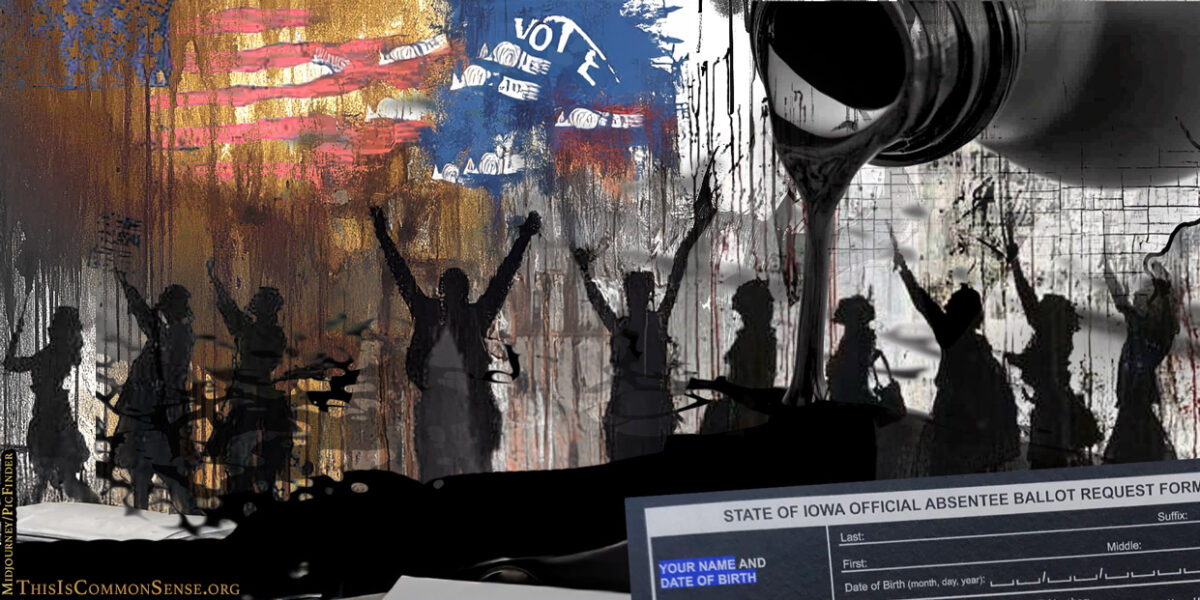“Iowans should vote no,” argues a Des Moines Register editorial, because defeating the Citizen Only Voting Amendment on the statewide ballot would “send a message — to legislators, to our neighbors at home and to the rest of the nation and world — that Iowans reject exclusion and suspicion and instead put a premium on inclusion and trust.”
Let’s unpack.
Ballotpedia summarizes Amendment 1 as prohibiting “state and local governments from allowing noncitizens to vote and allow 17-year-olds who will be 18 by the general election to vote in primary elections.”
Nothing suspicious there. But there is an exclusion, of course. The measure would exclude noncitizens from voting in state and local elections.
“The context,” or what the TDS-afflicted newspaper has apoplectically convinced themselves is the context, “is repeated assertions by President Donald Trump” and other Republicans “that immigrants without citizenship frequently register to vote and vote (more often for Democrats).”
The actual context is simply whether the state constitution should proclaim that only U.S. citizens are eligible to vote. A policy that Donald Trump and Kamala Harris are unsuspiciously excluded from voting on, but which would have prevented the 19 U.S. cities now allowing noncitizens to vote, including in most cases those here illegally, from doing so.
The Register nonetheless declares that “a higher standard is called for when the enduring language of the state Constitution is involved. That document should emphasize what unites Iowans.”
Yet nothing has united legislators more than this Citizen Only Voting Amendment, which passed each chamber of the Legislature twice without a single dissenting vote.
Bemoaning that “seven states have already, in the past six years, made identical or similar changes in their state constitutions,” The Register further complains that “this fall, Idaho, Kentucky, Missouri, North Carolina, Oklahoma, South Carolina and Wisconsin join Iowa in voting on similar amendments.”
The objection? “That’s a lot of ink spilt to enshrine imaginary protections against imaginary problems.”
These imaginative editors acknowledged, in the same piece, that “[e]xperts say it ties lawmakers’ hands from ever passing laws to permit residents without citizenship to vote in certain local or state elections, such as for school boards.”
Passing Amendment 1 means politicians at the capitol in Des Moines will have to go back to Iowa voters if they want to allow noncitizen voting.
No crying here over spilt ink.
This is Common Sense. I’m Paul Jacob.
Illustration created with Midjourney and Firefly
See all recent commentary
(simplified and organized)
See recent popular posts

